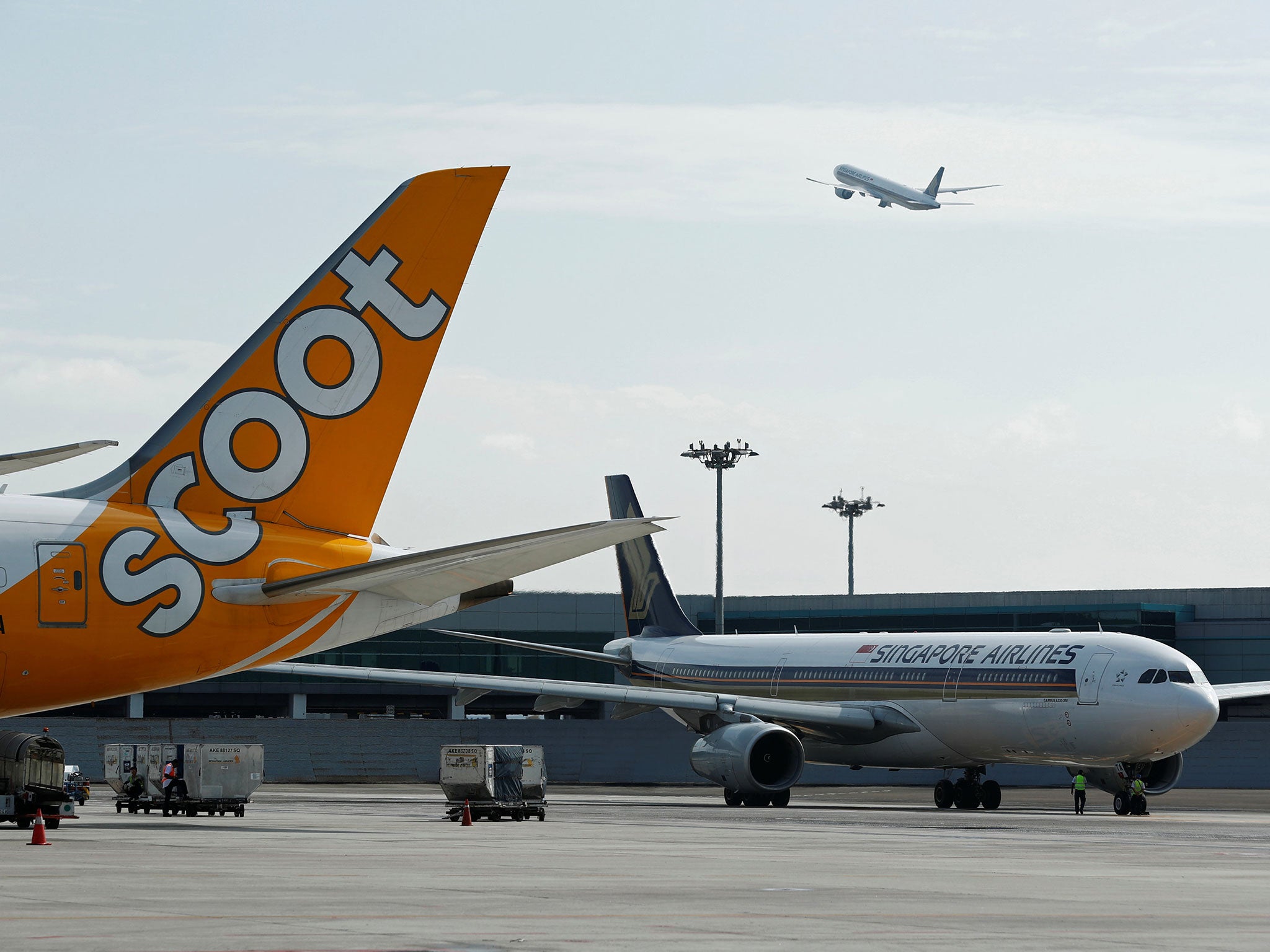Sussex to Singapore on Scoot: spelling success?
The Man Who Pays His Way: long-haul, low-cost aviation has a chequered history, much of it involving Gatwick

Your support helps us to tell the story
From reproductive rights to climate change to Big Tech, The Independent is on the ground when the story is developing. Whether it's investigating the financials of Elon Musk's pro-Trump PAC or producing our latest documentary, 'The A Word', which shines a light on the American women fighting for reproductive rights, we know how important it is to parse out the facts from the messaging.
At such a critical moment in US history, we need reporters on the ground. Your donation allows us to keep sending journalists to speak to both sides of the story.
The Independent is trusted by Americans across the entire political spectrum. And unlike many other quality news outlets, we choose not to lock Americans out of our reporting and analysis with paywalls. We believe quality journalism should be available to everyone, paid for by those who can afford it.
Your support makes all the difference.Simon Calder, also known as The Man Who Pays His Way, has been writing about travel for The Independent since 1994. In his weekly opinion column, he explores a key travel issue – and what it means for you.
Airports can find snowploughs useful even in fine weather. When an airline goes bust, a race begins between the leasing companies that own the planes and the airport management. Inevitably the failed carrier owes money to the airport for unpaid fees, and a good way to extract those from the aircraft owners is physically to stop them from leaving until the bill is settled. Which is where snowploughs and other heavy pieces of kit come in.
Back in 2005, one of the temporary sights at London’s second airport, Gatwick, was a stranded Boeing 747 in the colours of Phuket Air. Despite being named after a lovely Thai island, this airline linked the Sussex airport with the capital, Bangkok – or at least it did until Phuket Air became the latest example of the many problems facing long-haul, low-cost aviation.
Gatwick happens to provide the best possible example of the promise of short-haul, low-cost aviation. In two decades, easyJet has grown at the airport from an embryonic presence to its biggest carrier – and this week British Airways revealed how, with its BA EuroFlyer subsidiary, it seeks to emulate Britain’s biggest budget airline at the Sussex hub.
Yet Gatwick also provides examples of the failure of long-haul, low-cost aviation that go well beyond poor old Phuket Air.
One is ancient history: Sir Freddie Laker transformed and democratised transatlantic air travel with his Skytrain operation. But in the face of intense (and, say some, unfair) competition from established airlines, it folded after five years.
The low-cost airline, Norwegian, loved Sir Freddie so much that it named a plane after the pioneer. With its elaborate and extensive long-haul network based at Gatwick, Norwegian also spurred British Airways into “densifying” its planes to add more seats in order to compete on costs.
BA also copied a couple of destinations, Fort Lauderdale and Oakland, which were cheaper gateways for Miami and San Francisco.
The high-density seating remains, but those links have vanished as Norwegian shrivelled into the small, short-haul Scandinavian shell from which it had emerged.
What these failed endeavours share is a vulnerability to aggressive pricing from bigger rivals. Large airlines can afford to sustain losses on some routes when they make ripe pickings elsewhere. With companies and wealthier individuals paying handsomely for extra comfort on board, they can afford to sell basic economy tickets for next to nothing. (On my Air Canada flight from Heathrow to Toronto last weekend, the fare element was exactly £1 – the remaining £206 I paid was for taxes, fees and charges.)
Now yet another long-haul, low-cost airline is set to arrive at Gatwick – emulating poor old Phuket Air on the route to Bangkok, but with a continuation to Singapore. But this time I predict success.
The carrier is Scoot, which next month launches a link from Gatwick to Singapore via the Thai capital. It is a subsidiary of Singapore Airlines and specialises in links on which the mighty premium brand of the parent company does not count for much. These are mainly price-sensitive routes catering for tourists and VFR (visiting friends and relations) traffic: Singapore to Athens is a good example.
A danger for any “legacy” airline that starts a budget subsidiary is cannibalising its passengers; that’s not a reference to inflight catering, but the concept of existing customers moving to the cheaper option. London Heathrow to Singapore is usually a flourishing route, with British Airways, Qantas and the home airline all offering a premium, nonstop product. Neatly, Scoot will appeal to a different constituency of travellers: those who are prepared to tolerate a stop along the way and are currently flying to the city-state via the Gulf. It will also offer cost-sensitive travellers a nonstop alternative to Thailand, and for good measure will pick up passengers in Bangkok for the short hop down to Singapore.
Before beginning a regular service next March, Scoot is having something of a trial run over Christmas and New Year, with some appealingly low fares: I priced a return trip from Gatwick to Singapore out on 19 December, back nine days later, for just £345. That is hand luggage only – but when you are heading for the tropics 10kg is more than enough.
Gatwick’s snowploughs will not be needed beyond their official purpose: Scoot is as solid as its state-backed parent airline.
The most encouraging aspect of Scoot to Sussex? Aviation innovation is back, and better times are ahead.
Join our commenting forum
Join thought-provoking conversations, follow other Independent readers and see their replies
Comments